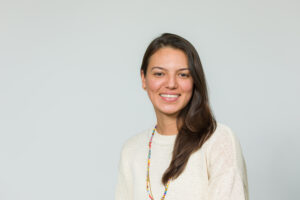Biography
I was born in Ocaña, a city in northeast Colombia, and got my bachelor’s degree in Biology from the Universidad Nacional de Colombia in Bogotá. Then, with a fellowship from the Max-Planck Research School for Evolutionary Biology (IMPRS), I moved to Plön, Germany, where I did my Ph.D. at the Max-Planck Institute for Evolutionary Biology and the Christian-Albrechts-Universität zu Kiel, under the supervision of Diethard Tautz.
During my Ph.D. I studied the genetic basis of within and between species craniofacial morphology in outbred mice as a model for complex traits. Later on, with a Long-Term Postdoctoral Fellowship from the Human Frontiers Science Program (HFSP) I moved to Princeton University in the U.S. to study the genetic basis of complex traits in changing environments (genotype-by-environment interactions). During my postdoctoral work in the Ayroles lab, affiliated with the Ecology and Evolutionary Biology Department and the Lewis-Sigler Institute for Integrative Genomics, I used outbred Drosophila as model system and focused on gene expression variation at the population level. In February 2022, I moved back to Germany, to the Friedrich Miescher Laboratory (Tübingen), where I’m leading the Max Planck Research Group on Evolutionary Genomics of Complex Traits.
Education and positions held
- 2016-2021:
- HFSP Postdoctoral Fellow, Princeton University, USA 2022-present: Max Planck Research Group Leader, Friedrich Miescher Laboratory, Tübingen, Germany.
- 2012-2015:
- Ph.D. at MPI for Evolutionary Biology, Plön, Germany 2015-2016: Postdoctoral Researcher, MPI for Evolutionary Biology, Plön, Germany.
Research Summary
Our research focuses on understanding (a) the genetic basis of between-individual variation in complex traits and (b) how such complex genetic architectures, instead of being static properties of a trait, get re-shaped when populations are exposed to different environments (genotype-by-environment interactions or GxE). In addition, we are particularly interested in (c) understanding how phenotypic robustness is regulated in such traits.
That is, we aim to understand not only why individuals in a population look different from each other, but also why some individuals are more vulnerable than others when exposed to perturbations like stressful or new environments. To explore these questions within the context of natural genetic variation, we use wild-derived outbred Drosophila melanogaster populations as model system. We integrate experimental and analytical tools across the fields of quantitative and population genetics, molecular and computational biology, and use experimental evolution to generate and analyze large-scale genomics datasets. Conceptually, our research tackles long-standing questions in evolutionary biology including the genotype-phenotype map and its context-dependent nature, and the (apparent) conflict between robustness and evolvability.
Key publications
- Tautz D, Reeves RG, Pallares LF. (2020). New experimental support for long standing concepts of poly-genic genetics implies that the Mendelian genetic paradigm needs to be revised. In: The New (Old) Genetics, Halle, eds. Wittinghofer, A. and Jäckle, H., NAL-live 2020.1, v1.0
- Pallares LF, Picard S, Ayroles JF. (2020) TM3’seq: A Tagmentation-Mediated 3’ Sequencing Approach for Improving Scalability of RNA-seq Experiments. G3 10: 143-150
- Pallares LF*, Ledevin R*, Pantalacci S, Turner LM, Steingrimsson E, Renaud S. (2017) Genomic regions controlling shape variation in the first upper molar of the house mouse. eLife 6:e29510
- Pallares LF, Carbonetto P, Gopalakrishnan S, Parker CC, Ackert-Bicknell CL, Palmer AA, Tautz D (2015) Mapping of Craniofacial Traits in Outbred Mice Identifies Major Developmental Genes Involved in Shape Determination. PLoS Genet 11:e1005607

